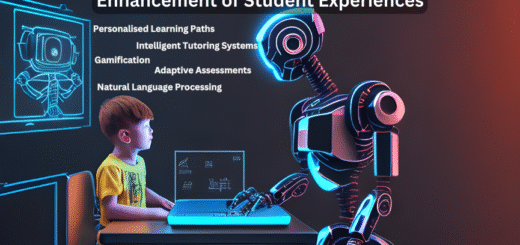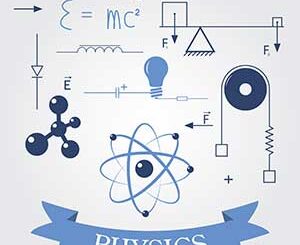Lifelong Learning is the Key to Success
In today’s rapidly evolving world, the concept of education has expanded far beyond the walls of traditional classrooms. The idea that one completes their education in school or college and then moves on to a stable career is now outdated. With the constant advancement in technology, globalization, and changing societal needs, the ability to learn continuously—known as lifelong learning—has become a crucial component of personal and professional success.
What is Lifelong Learning?
Lifelong learning refers to the ongoing, voluntary, and self-motivated pursuit of knowledge for either personal or professional development. It can occur in a formal setting, such as enrolling in online courses or workshops, or informally through reading, observing, self-reflection, or gaining new experiences. It’s not confined by age, profession, or status; anyone at any stage of life can become a lifelong learner.
Why Lifelong Learning Matters in the Modern World
1. Adapting to Rapid Technological Changes
One of the most significant reasons lifelong learning is essential today is the speed of technological advancement. New tools, platforms, and systems are emerging constantly. What was relevant five years ago might be obsolete today. For example, the rise of artificial intelligence, digital marketing, blockchain, and remote work has drastically reshaped many industries. Professionals who fail to keep up with these changes risk becoming outdated in their skills, while those who continue learning remain competitive and valuable in the workforce.
2. Personal Growth and Fulfillment
Lifelong learning isn’t just about staying employable; it’s also deeply connected to personal satisfaction. When we learn new things—whether it’s a language, a hobby, or a skill—we expand our understanding of the world and ourselves. It boosts self-confidence, mental health, and motivation. People who engage in regular learning tend to be more curious, open-minded, and resilient.
3. Increased Career Opportunities
Employers today value employees who show a willingness to learn and grow. They prefer individuals who can adapt, take initiative, and develop new skills over time. Lifelong learners are more likely to receive promotions, salary increases, and new opportunities because they bring fresh perspectives and up-to-date knowledge to the table. In fact, many successful professionals attribute their achievements to their continuous desire to improve and learn.
4. Better Problem-Solving and Critical Thinking
The ability to think critically and solve problems effectively is greatly enhanced through ongoing learning. As individuals expose themselves to new information, ideas, and experiences, their minds become more flexible. They can approach problems from various angles, make better decisions, and contribute more innovatively in their personal and professional lives.
Examples of Lifelong Learning in Action
- A retired teacher taking art classes to explore creativity and find new meaning in life.
- A software engineer learning new programming languages to keep up with industry standards.
- An entrepreneur attending seminars on digital marketing and e-commerce to grow their business.
- A homemaker taking online courses in psychology or health to improve family well-being.
These examples demonstrate that lifelong learning is not limited to any age group or background; it is a universal tool for enrichment.
Lifelong Learning and Success: A Strong Link
Success is often misunderstood as a fixed goal—wealth, fame, or power. But true success is more fluid; it’s about continual growth, contribution, and purpose. Lifelong learning fuels this kind of success by keeping individuals mentally active, emotionally intelligent, and socially connected.
Some of the world’s most influential people are known to be lifelong learners. Bill Gates, for example, is known for reading dozens of books each year. Elon Musk reportedly learned rocket science by reading books and asking questions. Oprah Winfrey constantly speaks about the importance of curiosity and education in her journey. These individuals didn’t stop learning after formal education—they made it a lifestyle.
Challenges to Lifelong Learning—and How to Overcome Them
While the benefits are clear, many people struggle to make lifelong learning a habit. Some common challenges include:
- Lack of time: Busy schedules often make learning seem like a luxury. However, even 15–30 minutes a day spent reading or watching educational content can make a difference.
- Fear of failure: Some people hesitate to learn new things due to fear of not doing well. It’s important to understand that failure is a part of learning and growth.
- Limited access or resources: While some learning platforms can be expensive, many free resources are available online—like YouTube tutorials, open-source courses (Coursera, Khan Academy), and public libraries.
Building a habit of learning requires discipline, curiosity, and an open mind. Setting clear goals, tracking progress, and celebrating small wins can help make the journey more fulfilling.
Tips to Become a Lifelong Learner
- Read regularly – Books, articles, research papers, and blogs can offer endless knowledge.
- Take online courses – Platforms like Coursera, edX, Udemy, and LinkedIn Learning offer affordable and flexible options.
- Learn from others – Engage in discussions, attend seminars, or join learning communities.
- Reflect and apply – Learning becomes powerful when it’s applied. Reflect on what you’ve learned and implement it in real-life situations.
- Be curious – Ask questions, seek answers, and never settle for “I know enough.”
Conclusion
In a world where change is the only constant, the ability to learn and adapt is the most valuable asset one can have. Lifelong learning empowers individuals to thrive in dynamic environments, remain relevant in their careers, and experience personal growth. It fosters a mindset of growth rather than limitation, leading to deeper fulfillment and broader success.
Education should never be seen as a one-time event but rather a continuous journey. Whether you’re a student, a professional, a parent, or a retiree, the path of learning is always open. Embracing lifelong learning is not just about acquiring knowledge—it is about shaping a better version of yourself every day.
In the words of Mahatma Gandhi: “Live as if you were to die tomorrow. Learn as if you were to live forever.” Let learning be your lifelong companion, and success will surely follow.


